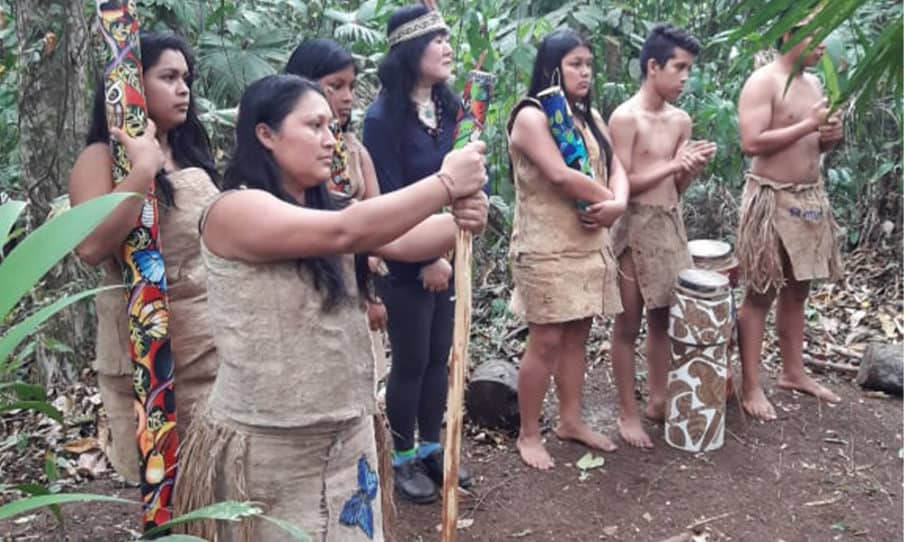
The Maleku people live in the rainforests of northern Costa Rica, holding onto traditions that tie them to the land. As a traveler fascinated by indigenous cultures, I’m inspired by their deep connection to nature and their fight to preserve their way of life. From their ancient roots to their modern resilience, let’s explore the Maleku’s story and what makes them unique.
Roots of the Maleku
The Maleku, also known as Guatuso, are a small indigenous group of about 600–1,000 people living in the Guatuso Indigenous Reserve near San Rafael de Guatuso, an hour north of La Fortuna. Their name, meaning “people of the forest” in their language, Maleku Jaica, reflects their bond with the rainforest. Their history traces back over 10,000 years, linked to Chibchan-speaking peoples of Central America.
Before Spanish contact in the 1750s, their territory spanned 2,500 square miles, from Rincón de la Vieja to Arenal Volcano. Colonization and Nicaraguan rubber farmers in the 1800s reduced their land to a 11.5-square-mile reserve, with only 15% owned by the Maleku—most residents are non-indigenous due to historical land sales.
Their society values equality, with elders leading decisions. Maleku Jaica, spoken by about 300 people, is kept alive through school programs and Radio Maleku broadcasts, connecting communities near the Nicaraguan border.
Spiritual Connection to Nature
For the Maleku, nature is sacred. Their beliefs center on spirits in trees, rivers, and animals, like the red macaw, a symbol of creation. Spiritual leaders, called wak’as, lead ceremonies with drums and dances to honor ancestors and give thanks. These rituals, common in villages like Palenque Tonjibe, strengthen their harmony with the environment.
Shamans, or sukias, heal with rainforest plants, using remedies passed down for generations. Medicinal gardens, like those in Villa Maleku, grow plants for treating fevers or wounds. In border areas near Nicaragua, Maleku guides share this knowledge with tourists, blending tradition with income. Their respect for nature fuels reforestation projects, planting trees to restore sacred sites like Río Celeste, a turquoise river tied to their creation stories.
Modern Challenges and Strength
The Maleku face pressures that threaten their traditions. Their reserve is small, with only 2 square miles under their control. Agriculture, logging, and dams encroach on their land, restricting access to sacred water sources. Unemployment, at 10%, is high among Costa Rica’s indigenous groups, pushing some to seek work in Guatuso or San José. Tourism and urban life draw younger Maleku away, with only 70% speaking Maleku Jaica fluently. Traditional palm homes are fading, replaced by concrete houses.
Despite this, the Maleku show strength. Since 2012, some have reclaimed disputed lands to protect their territory. Ecotourism in Villa Maleku offers dance performances, craft workshops, and medicinal plant tours, supporting the community. Artisans craft balsa wood masks and gourd bowls, using fallen trees to honor nature.
Last year, cultural workshops near La Fortuna welcomed Nicaraguan visitors, boosting pride. Sustainable farming, like cacao and pejibaye, aligns with their values, while NGOs like the Association for the Development of the Indigenous Maleku Territory push for land rights. A Maleku Jaica dictionary aids language teaching, and social media posts by Maleku youth spread their culture globally.
Table: Maleku Cultural Practices
| Practice | Description | Modern Use |
|---|---|---|
| Maleku Jaica | Native language, 300 speakers | Taught in schools, on radio |
| Ceremonial Dances | Honor spirits with drums, palm clothing | Performed for tourists |
| Medicinal Plants | Healing remedies from rainforest | Shared in ecotourism tours |
| Artisan Crafts | Balsa masks, gourd bowls | Sold locally and in San José |
This table highlights key Maleku traditions and their role today.
Final Thoughts
The Maleku people embody resilience, keeping their culture alive despite modern challenges. Their spiritual tie to nature, from rituals to sustainable crafts, offers lessons in living with the land. Land loss and economic struggles haven’t dimmed their spirit—ecotourism, activism, and education keep their heritage strong. If you’re in Costa Rica, visit their reserve near La Fortuna to see a dance or buy a carved mask. The Maleku’s story inspires us to value indigenous wisdom and support communities preserving their roots.

